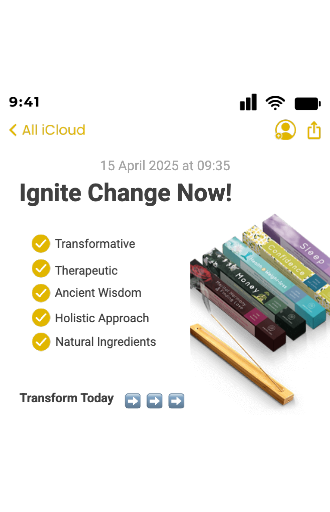
Mindfulness for Personal Growth
Key Takeaways
- Mindfulness practices enhance self-awareness and emotional regulation.
- Integrating mindfulness into daily routines can lead to significant personal development.
- Reflective exercises paired with mindfulness techniques promote deeper understanding of oneself.
- Mindfulness fosters a positive mindset and resilience in facing life's challenges.
Mindfulness is not just a trendy buzzword; it's a powerful practice that can significantly enhance your personal growth journey. By focusing on the present moment and cultivating a non-judgmental awareness, you can develop a deeper understanding of yourself and your interactions with the world. In this article, we will explore various mindfulness practices that can aid in personal development and self-growth.
Understanding Mindfulness
Mindfulness is the practice of maintaining a moment-by-moment awareness of our thoughts, feelings, bodily sensations, and surrounding environment. It involves acceptance, meaning that we pay attention to our thoughts and feelings without judging them as good or bad. This practice has roots in ancient meditation traditions but has gained immense popularity in modern times due to its benefits for mental and emotional well-being.
Benefits of Mindfulness for Personal Growth
| Benefit | Description |
|---|---|
| Enhanced Self-Awareness | Mindfulness helps you become more aware of your thoughts and emotions, allowing for better self-reflection. |
| Improved Emotional Regulation | Practicing mindfulness can lead to better control over emotional responses and reactions. |
| Stress Reduction | Mindfulness techniques can reduce stress and promote a sense of calm and clarity. |
| Increased Resilience | By fostering a positive mindset, mindfulness can help you navigate life's challenges more effectively. |
| Greater Compassion | Mindfulness encourages empathy towards oneself and others, fostering deeper connections. |
Mindfulness Practices to Enhance Personal Growth
1. Mindful Meditation
Mindful meditation involves focusing your attention and eliminating the stream of thoughts that may be crowding your mind. This practice can help you develop a greater sense of peace and clarity.

2. Reflective Journaling
Writing down your thoughts and feelings can provide clarity and insight. Reflective journaling encourages you to explore your emotions and experiences, facilitating personal growth.
3. Mindful Breathing
Focusing on your breath is a simple but powerful mindfulness technique. It can help ground you in the present moment and reduce anxiety.
4. Body Scan
The body scan technique involves mentally scanning your body for areas of tension and consciously relaxing those areas. This practice promotes physical awareness and relaxation.
5. Walking Meditation
Walking meditation combines movement with mindfulness. It encourages you to focus on the experience of walking, enhancing your connection to your surroundings.
Incorporating Mindfulness into Daily Life
Integrating mindfulness into your daily routine can lead to significant personal development. Here are some practical tips on how to do this:
Tips for Beginners
- Start small: Dedicate just a few minutes a day to mindfulness practice.
- Set reminders: Use alarms or notes to remind yourself to practice mindfulness throughout the day.
- Choose a quiet space: Find a comfortable and peaceful place to practice mindfulness.
- Be consistent: Aim to practice mindfulness daily to develop a habit.
- Join a group: Consider joining a mindfulness or meditation group for support and guidance.
Challenges in Practicing Mindfulness
While mindfulness can be beneficial, it may come with challenges. Here are some common obstacles and tips to overcome them:
| Challenge | Solution |
|---|---|
| Difficulty focusing | Start with short sessions and gradually increase the duration. |
| Restlessness | Incorporate movement, such as walking meditation, to release excess energy. |
| Self-judgment | Practice self-compassion and remind yourself that mindfulness is about acceptance. |
| Lack of time | Integrate mindfulness into daily activities, such as eating or walking. |
Conclusion
Mindfulness is a valuable tool for personal growth and development. By incorporating mindfulness practices into your daily routine, you can enhance your self-awareness, emotional regulation, and resilience. Remember, the journey of personal growth is ongoing, and mindfulness can guide you every step of the way.
Pros
- Promotes emotional well-being.
- Enhances self-awareness.
- Reduces stress and anxiety.
- Fosters a positive mindset.
- Improves focus and concentration.
Cons
- Can be challenging for beginners.
- Requires consistent practice to see results.
- May not be suitable for everyone.
- Can evoke uncomfortable emotions during practice.
Further Exploration
To continue your journey into mindfulness and personal growth, explore our related resources:











